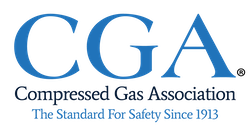DOT FMCSA Issues Notice of Enforcement Discretion Determination for Random Controlled Substance and Alcohol Testing
Posted: July 24, 2020
In its July 6, 2020 Notice, the U.S. Department of Transportation (DOT) Federal Motor Carrier Safety Administration (FMCSA) notes motor carrier employers subject to controlled substance (drug) and alcohol testing under 49 CFR part 382 may be unable to comply with certain testing requirements due to the ongoing impacts of the COVID-19 global pandemic.
In recognition of the barriers to full compliance in some locations, FMCSA may exercise discretion to determine not to enforce the minimum annual percentage random testing rates for drugs and alcohol, and the requirement that each employer ensure that the dates for administering random drug and alcohol tests are spread reasonably throughout the calendar year. FMCSA emphasizes, however, that employers capable of meeting these requirements must continue to do so.
In the Notice, FMCSA notes, employers must continue to select drivers at the required rate of 50 percent of their average number of driver positions for controlled substances, and 10 percent for random alcohol testing during the calendar year 2020.
If a test is unable to be completed due to the COVID-19 public health emergency, the motor carrier must maintain written documentation of the specific reasons for non-compliance. For example, employers should document closures or restricted use of testing facilities or the unavailability of testing personnel. Additionally, employers should document actions taken to identify alternative testing sites or other testing resources.
Similarly, employers who are unable to ensure that the dates for administering random controlled substances and alcohol tests are spread reasonably throughout the calendar year should document the specific reasons why they did not meet this requirement. For example, in addition to the lack of available testing facilities or personnel, there may be other factors, such as prolonged or intermittent driver furloughs due to the impacts of COVID-19.

